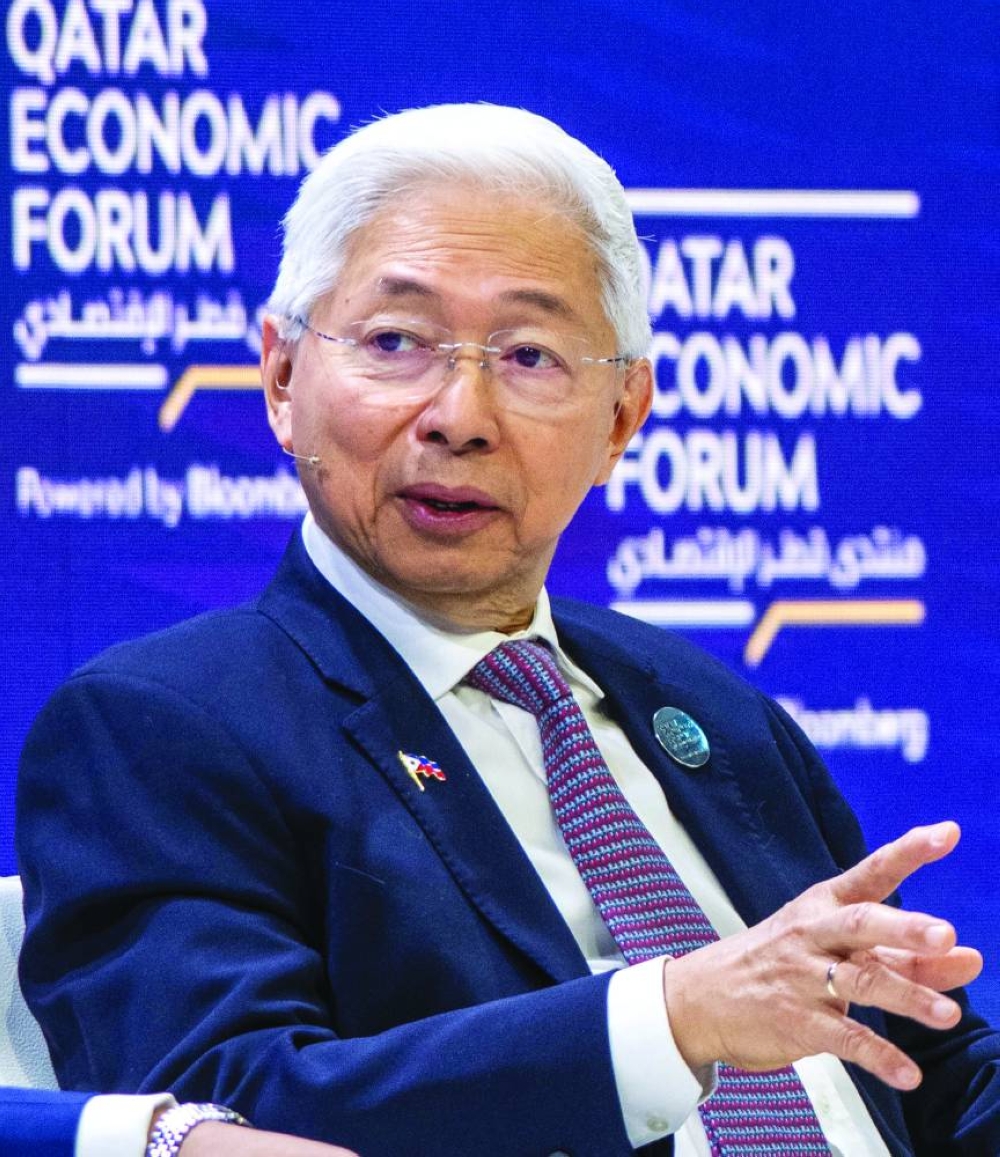The top official of the Department of Trade and Industry (DTI) in the Philippines has identified several specific sectors or industries that could be infused with investments from the State of Qatar.
DTI Secretary Alfredo E Pascual said Qatar may pour investments in the following priority sectors: agribusiness/agriculture; energy efficiency technologies and renewable energy (RE); infrastructure and public-private partnership (PPP) projects, such as real estate development and logistics; artificial intelligence (AI); Information Technology and Business Process Management (IT-BPM); manufacturing; oil and gas; processed and speciality food (Halal food); and tourism, including hospitality.
In an interview with Gulf Times, Pascual said the Philippine government welcomes investment stakes in the RE sector to accelerate the exploration and development of RE sources, achieve energy self-reliance, and produce clean energy to mitigate the effect of climate change.
According to Pascual, a total of 1,002 projects were awarded RE contracts as of December 31, 2022. Of these, 216 are existing facilities, with a total installed capacity of 5,571MW. Meanwhile, 786 projects with a potential capacity of 80,399MW are still under the predevelopment and development stage.
Pascual said variable RE technologies, particularly wind and solar, have the highest combined potential of 67,046MW, comprising 83% of the total potential capacity. For ocean energy, the Philippines potentially has 24MW from eight proposed projects.
The DTI secretary noted that the DTI sees potential for increased collaboration or joint ventures between Philippine and Qatari companies in the RE industry and other related downstream supply chain operations.
“We also offer various opportunities in this field. Aside from the development and operation of RE projects, the Philippines can also host Qatari companies and their partners/suppliers engaged in the production and supply of turbine, foundation, cable and substation, and EPC/construction,” Pascual emphasised.
Pascual also stressed that IT-BPM is a key pillar of the Philippine economy and serves as an enabler of support industries essential to the global value chain linkages of the aerospace, automotive, and electronics industries.
He said the Philippine IT-BPM industry specialises in around 10 sector verticals and thus, also represents a major contributor to the competitiveness, productivity, and efficiency of the respective sectors they are supporting. Some of these are bank and financial institutions, the aerospace sector, the electronics industry, and healthcare, Pascual pointed out.
“Moreover, the sector was valued at $35bn in 2023 and is currently employing 1.7mn. Based on the projections of the IT and Business Process Association of the Philippines (IBPAP), the industry is expected to grow to $59bn by 2028.
“The Philippines can also serve as a captive base/global business service centre for finance, accounting, logistics, data analytics, and other high-value services. Further, we boast of its software development capabilities, with a total manpower of 200,000,” Pascual said.
The DTI is also prioritising PPP infrastructure projects, particularly in the fields of water storage and management, renewable energy, waste management, logistics, transportation, Information and Communications Technology (ICT), urban development, and disaster mitigation, Pascual said.
“Sustainable infrastructure is vital to the achievement of global clean growth and climate resilience. Hence, the administration of President Ferdinand ‘Bongbong’ Marcos, Jr has pledged to expand on ‘Build, Build, Build’, the previous leadership’s committed infrastructure programme, which was intended to launch a ‘golden age’ for infrastructure and economic growth. The programme has since been renamed ‘Build, Better, More’. President Marcos approved 198 high-impact infrastructure flagship projects (IFPs) worth P8.8tn ($155tn),” Pascual said.
He added: “We are actively working towards establishing the Philippines as a manufacturing and logistics hub in Asia, particularly for Halal products. Efforts are also being made to streamline certifications for Philippine products in Qatar, aiming to reduce the burden on exporters and facilitate trade.”

Department of Trade and Industry Secretary Alfredo E Pascual.

